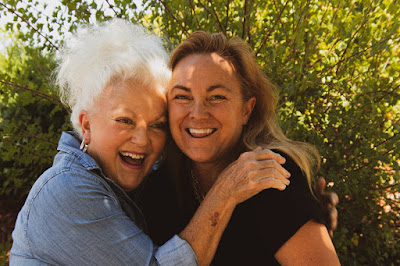Choosing the best assisted living facility for your loved one with Alzheimer's may be difficult, but it's essential. When you choose a new home for them, make sure they are going to have everything they need and want, as well as an enjoyable lifestyle.
Find out more about the right type of facility and what services will be offered below.
As a family member of an Alzheimer's patient, you know that the disease can be difficult to manage. So what are your options? There is assisted living as one option for seniors with Alzheimer's who need help with their daily activities.
This blog post covers everything you need to know about assisted living facilities and how they work. You'll learn if this is the right choice for your loved one, how to find a good facility, and more!
Alzheimer's is a neurological disease that affects people of all ages. It causes memory loss and other mental abilities, as well as changes in personality, behavior, and how one interacts with others.
The progression of the disease varies from person to person but it eventually leads to death. As Alzheimer's progresses, there are some things you should know about assisted living facilities for seniors who have Alzheimer's or another dementia-related disorder.
A person can never know when they will find themselves in need of some extra care. They might not be able to live independently for a period of time, or maybe just want the support and security that comes from choosing the best assisted-living facility.
What's the Difference Between Nursing Homes and Assisted Living Facilities?
But what is the difference between traditional nursing homes and assisted living facilities? Assisted Living Facilities offer 24 hour assistance with healthcare needs as well as activities of daily life such as carrying groceries from your car into your home if you are unable to do so on your own.
Besides these services, residents also experience comfort by being surrounded by people their age who share similar interests while staying active both mentally and physically through engaging social events like cooking classes!
What is an assisted living facility?
Assisted living facilities are not all the same! The range of structures, services, and communities that fall into this category is quite broad.
Whether you are looking for assisted living in a city or the suburbs, there's an appropriate option. Some communities offer all of their residents access to nature trails and parks, while others might have specialized units with Alzheimer’s care facilities.
Amenities Found in Assisted Living Facilities
When looking for a place to live, assisted living facilities are often one of the best options. They offer a wide range of amenities that can make your life more enjoyable and comfortable. There are many different types of assisted living facilities out there, so it is important to know what you want before making a decision.
List of common amenities found in assisted living facilities:
• Daily Housekeeping Service - This allows you to keep your room and bathroom clean without having to lift a finger! In fact, this can be one of the most valued benefits for many people with mobility issues because they are unable to do it themselves.
• Three Meals a Day - This is great for seniors who are unable to cook or have trouble getting around the kitchen. Seniors can opt to eat in a common dining area with others for conversation and companionship.
• Social Activities and Outings - One of the most important things about assisted living facilities is that they offer social opportunities for people without a lot of social contact outside their home life. These events can be anything from going to the movies with a group, fishing, visiting a museum, participating in arts and crafts lessons or going on other excursions.
• 24 Hour Security Monitoring - This is important for all homes but especially in assisted living facilities with an increased risk of falls.
• Staff That are Available for Daily Tasks - These aides can be there to help when seniors are feeling tired, or they can also be used as companionship and socialization opportunities.
• Access to Medical Support - To help take care of the resident's medical needs on site (if needed) or off site. This would include doctors visits, specialist appointments, and medical procedures, and close proximity to emergency care.
• Medicine Care - Medications are available through the facility to assist in managing health conditions that may be present with residents. This allows for a more coordinated care plan than if medications were being handled by family members or other healthcare professionals off site.
Is Assisted Living Right For You?
When looking for a place to live, assisted living facilities are often one of the best options. They offer a wide range of amenities that can make your life more enjoyable and comfortable. There are many different types of assisted living facilities out there, so it is important to know what you want before making a decision. In this article, I will list some of the most common amenities found in assisted living facilities and discuss their benefits!
So how do you know if assisted living is right for you? A good way to determine this is to look at the types of support and services typically offered in this kind of senior housing. Here are some things to consider:
• Do you need help with activities of daily living? If so, assisted living facilities often offer a range of services such as assistance with cooking and housekeeping.
• Do you require supervision because of memory or cognitive impairment? In this case, an assisted living facility is the best option for ensuring safety and security.
• Do you need help with medications? Assisted living facilities often offer medication reminders, so residents can continue to live an independent lifestyle!
• Do you need help with transportation to appointments? Assisted living facilities offer a range of services, such as free taxi rides.
• Do you need help managing finances and paying bills?
What Do You Require from an Assisted Living Care Home
As a potential resident, what are you or your loved one looking for in an assisted living facility? As someone who is considering moving into an assisted living facility, there are many factors that would go into your decision on where to live. Such as:
• The Atmosphere - Is the atmosphere of this particular assisted living care home comfortable and welcoming?
• Compatibility of Residents - Are residents treated with respect by their fellow housemates and staff members alike?
• Is the Assisted Living Facility Well Kept - The assisted living facility should be well maintained in order to ensure that it is clean and healthy for both seniors residing there as well as staff members.
• Are the Residents Safe and Happy? - The assisted living residents enjoy a healthy, safe environment where they can live with dignity for as long as they live there - whether it be months or years from now.
• Do the Staff Seem Attentive, Caring and Compassionate? - What are the Staff Like? Did you notice the staff's professional tone of voice?
• Do They Allow Pets? - Are pets allowed on site or nearby? That might be important if you have a pet of your own. Assisted living facilities allow some residents to bring their beloved furry friends with them!
• What Size is the Assisted Living Community? - How does the size of the assisted living community work for your family?
• Are There Special Areas for Certain Residents - Is there a separate area for residents who need more care and monitoring, such as those with dementia or Alzheimer’s disease?
Choosing the Best Assisted Living Facility - Conclusion
When choosing the best assisted living facility, it's important to learn as much about the facility and its amenities before making that big life transition. The move from living on your own or with those who are not elderly is often difficult so choosing an assisted-living set up can be a daunting task. Knowing what you want in advance will make this change easier!








